AFGHANISTAN CRISIS APPEAL
Reporting back
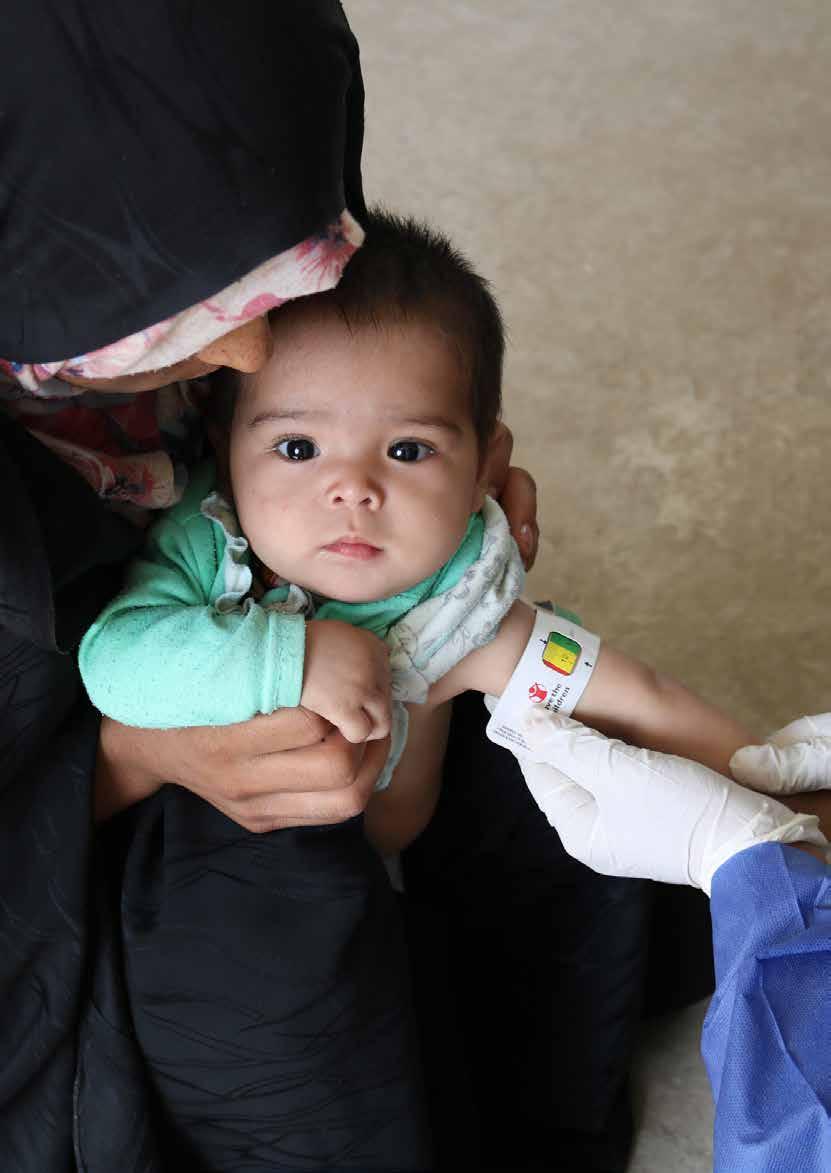
Final programme report December 2021 – December 2023





Final programme report December 2021 – December 2023



In December 2021, the humanitarian situation in Afghanistan was deteriorating rapidly. Across the country, people were grappling with a crisis exacerbated by political instability, economic collapse, persistent drought and the harsh onset of winter. Eight million people were on the brink of famine, and a million children were projected to suffer from life-threatening severe acute malnutrition over the next three months. It was clear that the crisis was on a scale to demand urgent international assistance to save the lives of some of the people most severely affected.
Against this backdrop, the DEC launched the Afghanistan Crisis Appeal on 14 December 2021, with televised appeals on all the major UK broadcasters. It was presented on the BBC by TV presenter JJ Chalmers, and by actor Gillian Anderson on ITV, Channel 4, Channel 5 and Sky. Appeals were voiced by various presenters on BBC radio and by actor Lenora Critchlow on commercial radio. The appeal also gained support from HM The King (then HRH The Prince of Wales), newsreader Jon Snow and actor Jodie Whittaker.
As ever, the UK public responded generously to seeing people in urgent need, and the appeal raised £9.5 million in the first 24 hours. By the time the appeal closed for donations that total had risen to £51.8 million, including £10 million matched by the UK Government as part of the UK Aid Match scheme.
These funds had an immediate impact on the work of our member charities which were able to quickly scale up their emergency response. In the first six months after the launch of the appeal, 243,000 people received cash payments to help them meet their immediate needs from DEC funds. This fast, efficient method of delivering aid is one that our member charities increasingly use as a vital part of their response. It allows people to choose what to buy to meet their families’ needs, such as food or medicines, and supports the local economy. This removes the need to set up new supply chains to purchase aid items which means that donations go further and DEC member charities can help more people.
Of course, this sits alongside more traditional aid delivery such as food parcels, which were delivered to 130,000 people in the first six months using DEC funding, and are used when cash payments aren’t appropriate. Filling a vital gap, member charities also used DEC funds to provide primary health services to 179,000 people, often in remote places through mobile health clinics. In the winter months, when heavy snow hit mountainous regions, one DEC charity even resorted to using donkeys to get vital aid to people in villages that were otherwise unreachable.
Working amid economic collapse and under a restrictive government presented challenges for DEC charities. Cash payments made up the largest proportion of aid spending during this two-year response, but at times getting hold of actual cash proved difficult due to the economic circumstances. Meanwhile in December 2022, the Taliban prohibited women from working in the humanitarian sector. Female aid workers are essential in any response, but particularly in Afghanistan, where it would not be culturally appropriate for male staff to interact with women in many settings. DEC charities used their long experience to
Darya,* from Mazar-e-Sharif, is one of many women provided with essential aid to help support her family.

innovate and adapt, integrating other forms of support into health and nutrition programmes, where female staff were still allowed to work.
DEC charities also faced other types of interference from authorities in Afghanistan. But they stood firm in their commitments to delivering humanitarian aid impartially, independently and based on unmet needs on the ground, explaining the principles of humanitarianism that underpin their work. They were ultimately allowed to continue their work, albeit with some delays – a testament to their experience of navigating the most challenging environments to get life-saving help to people in need.
With needs still incredibly high in Afghanistan, the second phase of the response continued to provide people with basic essentials, with 38% of aid expenditure going towards cash payments for the most vulnerable families. However, there was more of a focus on restoring people’s livelihoods so that they can support themselves and their families into the future. This included providing grants to help people buy sewing machines or livestock, cash-for-work programmes that pay people to develop vital infrastructure and a project to help women grow silkworms and harvest their cocoons to sell.
This report provides details of this second phase of the response, building on our previous Six Month Report. It highlights examples of our member charities’ work to show the crucial impact the UK public’s donations to our appeal had and the effect they had on the lives of 2.7 million people across Afghanistan.
On behalf of the DEC, our member charities and their local partners, I would like to extend my deepest gratitude to everyone who has supported the Afghanistan Crisis Appeal. While the humanitarian situation in the country remains extremely difficult, your support to the DEC’s appeal helped avert the kind of catastrophic crisis that was being predicted in December 2021 and saved many lives.
Thank you for your continued support.
Saleh Saeed Chief Executive of the DEC
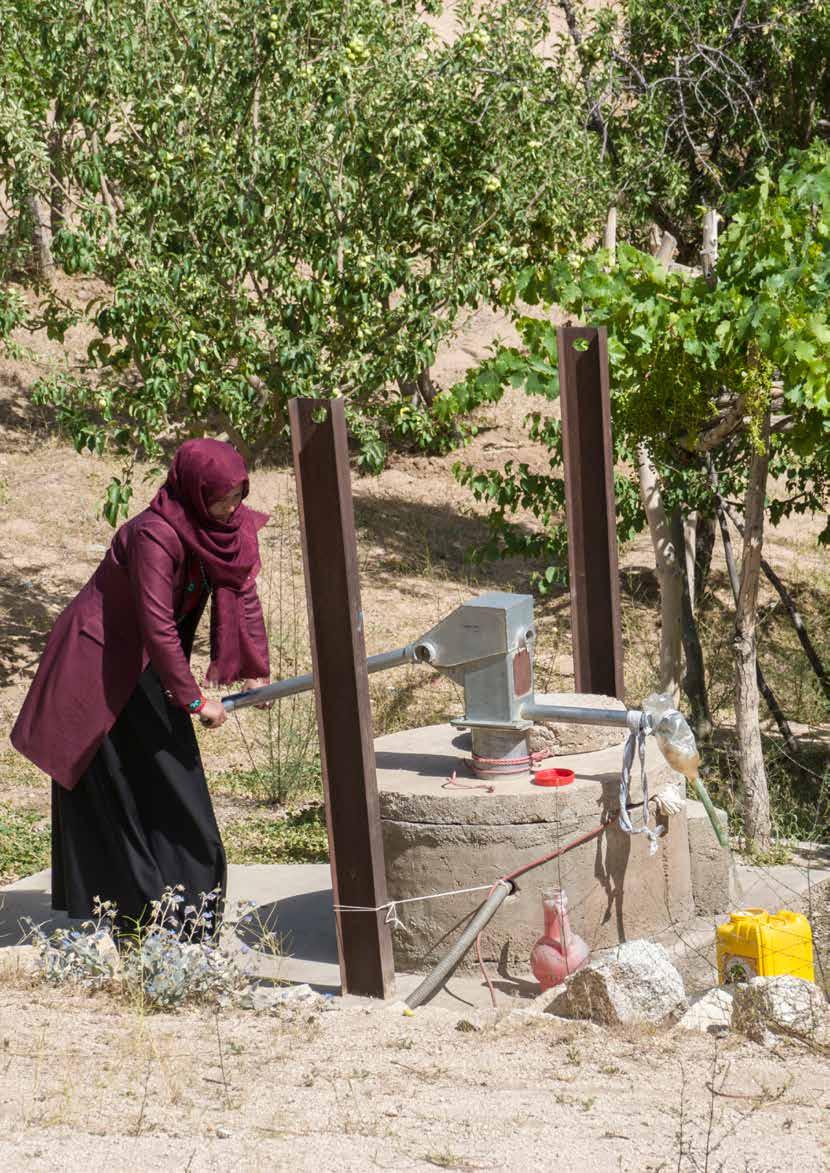
In 2021, drought, renewed conflict and a change of government pushed Afghanistan into economic collapse. Combined with rising global food prices, this left millions of people at the brink of famine. Decades of conflict and instability had left around 18.4 million1 people in urgent need of help. When the Covid-19 pandemic hit in 2020, it significantly affected people’s health, income, and debt levels, and put enormous strain on the already struggling health system.
When the DEC launched its Afghanistan Crisis Appeal in December 2021, the economic and humanitarian situation in the country was deteriorating. A few months earlier the Taliban returned to power after being removed by a US-led military coalition in 2001. Under Taliban rule and international sanctions, the economic situation declined, and unemployment increased. This forced more people into deprivation and hunger. Women also faced severe restrictions on their movements including the right to work and have an education. This pushed more families into crisis.
From December 2021 to December 2023, 13 DEC member charities and their local partners used donations to the appeal to provide vital support to an estimated 2.7 million* people.
Every DEC humanitarian response has two phases: the first six months is an emergency phase that focuses on helping people to meet their immediate needs. The next 18 months places a greater emphasis on long-term recovery and strengthening resilience to withstand future crises.
This report covers the whole response period in Afghanistan, but it focuses on the second phase of the response which took place between July 2022 and December 2023.
During the two-year response, there were a number of challenges that affected the delivery of humanitarian programmes. One of the biggest issues was the government banning women from working in aid organisations in December 2022. The DEC and its member charities advocated for months to allow female staff to continue working in the sector. Although the ban wasn’t lifted, the Ministry of Public Health made an exemption to allow women in the health sector to resume their work. Later, the Ministry of Education also granted an exemption for some women working in the education sector.
During the second phase, DEC member charities and local partners carried out projects to help people rebuild their livelihoods and earn an income. This included training people in how to use different agricultural practices that would withstand climate change. For example, crop diversification and soil management. Grants were given to communities to help them buy equipment and livestock and to support them to produce crops.
However, due to the ongoing and evolving crisis, DEC member charities and local partners continued to support people. For example, they provided food packages and multi-purpose cash assistance so people could meet their immediate needs. This helped inject much needed cash into the local market. Mobile
health units were set up to provide essential healthcare to remote communities and deliver counselling and psychosocial support to people experiencing trauma. The units also provided care to mothers and newborn babies and supported women with their reproductive health.
Operating in a hostile environment with severe restrictions, member charities and their partners faced huge challenges in delivering humanitarian assistance. During phase two, one of the biggest difficulties in rural areas was getting access to large amounts of physical cash to distribute to communities. This was because of the economic collapse, fluctuations with the exchange rate and government sanctions. This caused delays in delivering aid as members struggled to distribute cash directly to those who needed it.
Despite these challenges, members and partners provided vital support to hundreds of thousands of vulnerable people in Afghanistan. In the second phase of the response, more than 75,000 people received essential food assistance, like food baskets containing flour, rice and pulses. And over 422,000 people benefited from cash payments to pay for items such as food, winterisation and household items, and clothing.
*While efforts have been made to avoid counting people twice, some people may have been helped more than once by different member charities.
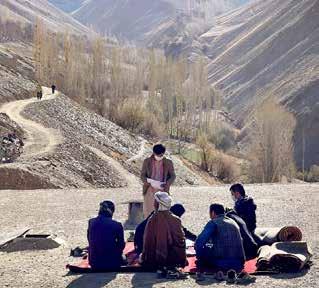
Read the six-month report about phase one of the Afghanistan Crisis Appeal: www.dec.org.uk/afghanistan-crisis-appealsix-month-report
The Coronavirus Appeal report shows how funds were used to support Afghanistan during the Covid-19 pandemic: www.dec.org.uk/report/2020-coronavirus-appeal-sixmonth-report
March 2020: The Covid-19 pandemic puts a strain on Afghanistan’s already fragile health system.
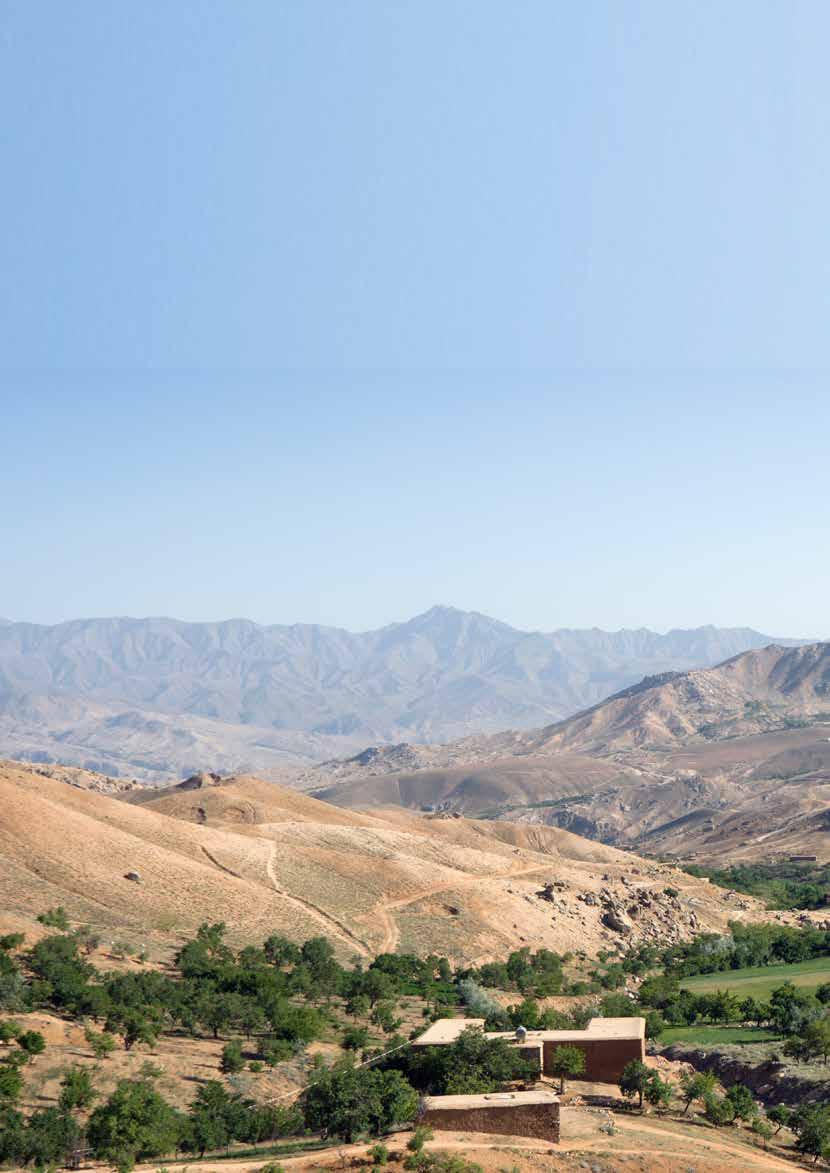
July 2020: The DEC launches its Coronavirus Appeal to protect vulnerable people in six of the world’s most unstable countries, including Afghanistan.
August 2021: International forces withdraw their remaining troops and the Taliban returns to power. The Afghan economy declines, plunging people into extreme poverty and new sanctions are put in place by Western governments.
October 2021: Drought conditions cause food insecurity as harvests fail.
December 2021: The DEC launches the Afghanistan Crisis Appeal. The initial emergency phase focuses on helping people to meet their immediate needs.
July 2022: The second phase of the DEC response begins. It continues to support people’s needs and helps them to rebuild their livelihoods.
October 2022 –January 2023: Second year of drought in Afghanistan causes further food insecurity.

December 2022: Women are barred from working for NGOs.
October 2023: Four earthquakes strike Herat province, killing over 1,400 people and leaving 114,000 people in need of humanitarian aid2. Seven DEC member charities respond to the crisis, providing cash assistance, food, winterisation kits and household items to people in urgent need.
October 2023: Pakistan Government declares that all undocumented migrants must voluntarily leave the country by 1 November 2023 or face deportation. Nearly half a million people return to Afghanistan.
31st December 2023: Programmes funded by the DEC Afghanistan Crisis Appeal end.
During 2022 and 2023, Afghanistan faced political and economic instability and insecurity. International organisations, including the UN and non-governmental organisations (NGOs), supported the country with humanitarian aid. Despite these efforts, the situation remained precarious, with ongoing challenges to deliver aid to those who needed it.
In June 2022, six months after the DEC response began, Afghanistan was still facing severe food insecurity. More than half (55%) of the Afghan population didn’t have enough to eat3 Drought conditions were causing crops to fail and there was a shortage of clean drinking water.
When four earthquakes hit Herat province in October 2023, more than 275,000 people were affected. The earthquakes destroyed homes, livelihoods and essential infrastructure. DEC member charities and local partners adapted their plans, reallocating funds to quickly deliver critical aid to the area.
Throughout Afghanistan, women and girls found it challenging to access humanitarian aid and medical services after the Taliban placed restrictions on their movements. Women and girls were unable to travel without being accompanied by a male guardian. Female-headed households, or those without a male guardian, struggled to access the support they needed, like health and protection services. The response was made more complex when the government banned women from working in the humanitarian sector. DEC members found it difficult to reach women and girls who needed support.
From November 2023, nearly half a million people returned to Afghanistan when the Government of Pakistan declared undocumented migrants must leave the country or face

deportation. This placed extra pressure on already overstretched resources, including healthcare services and led to further shortages of food.
After the Taliban took control in August 2021, many international donors withdrew their support, reducing funding for aid. This meant that DEC funds were vital in supporting people in Afghanistan. Funds raised by the Afghanistan Crisis Appeal were spent over two years, ending in December 2023. In this report, we cover some of the key achievements within phase two of the response and look at how DEC members and local partners helped people in Afghanistan to recover and start to rebuild their lives.
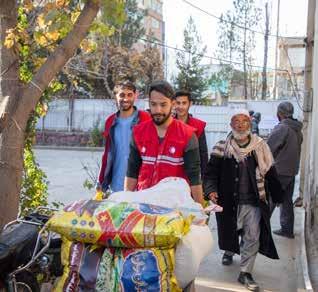
On 14 December 2021, the DEC launched the Afghanistan Crisis Appeal with a live press conference, and television and radio appeals. The televised appeals were broadcast after the evening news and were delivered by TV presenter JJ Chalmers on the BBC, and actor Gillian Anderson on ITV, Channel 4, Channel 5 and Sky. The radio appeal was voiced by various presenters on BBC radio and by actor Lenora Critchlow on commercial radio. The appeal also gained support from HM The King (then HRH The Prince of Wales), newsreader Jon Snow, and actor Jodie Whittaker.
The DEC carried out a multi-channel fundraising campaign for the appeal, with adverts appearing in national newspapers and news websites, outdoor billboards, the National Rail and Transport for London networks, commercial TV stations and social media.
The DEC is thankful for the amazing generosity of both the UK public and corporate supporters towards the Afghanistan Crisis Appeal. The appeal raised a total of £51.8 million. Of this, £39 million came directly to the DEC, including £10 million matched by the UK Government as part of the UK Aid Match scheme. The remaining £12.7 million was raised by DEC member charities through their own direct appeals to supporters using DEC co-branding.
In March 2022, three months into the Afghanistan Crisis Appeal, the DEC launched the Ukraine Humanitarian Appeal which would go on to be the second largest appeal in the DEC’s 60-year history. The DEC wishes to thank the supporters who continued to give and fundraise for the Afghanistan Crisis Appeal to support people in Afghanistan despite the reduced level of coverage
it received. The Afghanistan Crisis Appeal received numerous further significant donations during this period for which we remain incredibly grateful.
The running costs of the appeal were £3.5 million, including all associated DEC overheads, representing 9.5% of total income raised.


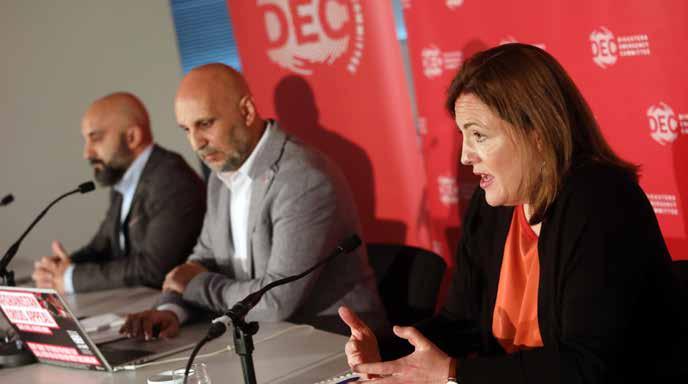
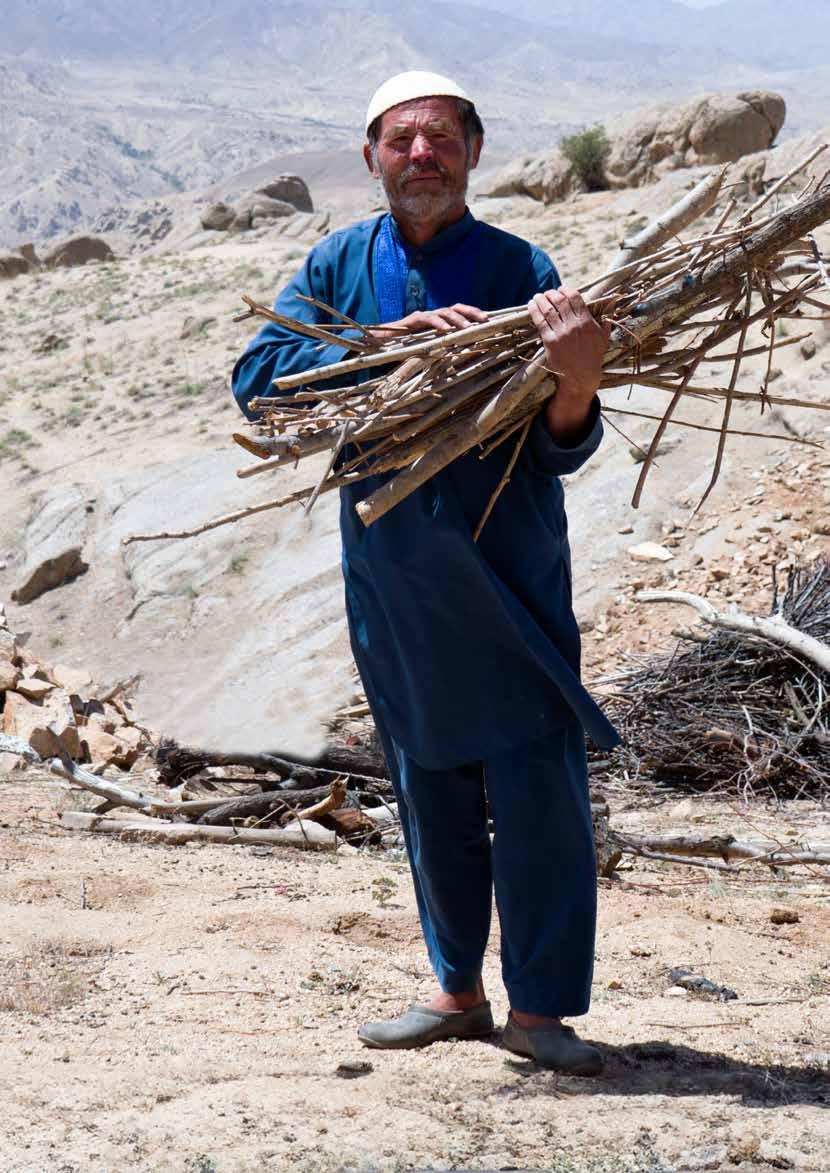
£51.8 million raised
Thanks to the generosity of the UK public, the Afghanistan Crisis Appeal raised £51.8 million. Of this, £39 million (60%) was donated directly to the DEC, including £10 million that was matched through the UK Government’s Aid Match scheme.
The DEC was the ninth highest contributor to the Afghanistan Humanitarian Response Plan 2022 as reported by UN OCHA Financial tracking service (FTS)4. The appeal money was used to fund the work of 13 DEC member charities and their local partners across all 34 provinces of Afghanistan. Together, they helped an estimated 2.7 million people* during the two-year response.
The remaining £12.8 million raised through the appeal was directly donated to the 13 DEC member charities responding to the crisis and their local and national partners.
The DEC reports on funds that come directly to the organisation (£39 million including £10 million UK Aid Match). Member charities and local partners report on income that comes directly to them.
From December 2021 to December 2023, 13 DEC member charities spent £36.8 million of the DEC funding to provide essential aid to the most vulnerable people.
At the end of the response period, there was a small underspend of £116,725. The DEC allows funds to be used flexibly so aid reaches those most in need. Following the earthquakes in Herat, one member was unable to spend some funds when authorities revoked permission for work in one province at the last minute.
*While efforts have been made to avoid counting people twice, some people may have been helped more than once by different DEC member charities.

Some of the main areas that funds were spent on included:
giving cash payments to families so they could buy what they needed, such as food and medicine
improving access to health services by setting up mobile health units, providing healthcare specifically for women and children, and mental health and psychosocial support
providing families with packages of essential food such as flour, vegetable oil, pulses, beans and rice, and household kits containing equipment and fuel for cooking
helping people to rebuild their livelihoods by providing grants for equipment, livestock and to grow crops and food
buying warm clothes, blankets and heating supplies to help families stay warm during the harsh winter months
DEC members direct spending
Through other partners*
Through local/national partners Funds
Dec 2021 - Dec 2023
*These include international partners For example, CAFOD gave funding to Caritas Germany
Total funds spent in phase 2: £23.3 million June 2022 – December 2023
July 2022 - December 2023
Multi-purpose cash
Livelihoods
Capacity strengthening

Phase 1: December 2021 – June 2022
313,000
women, children and vulnerable people were given information on gender-based violence.
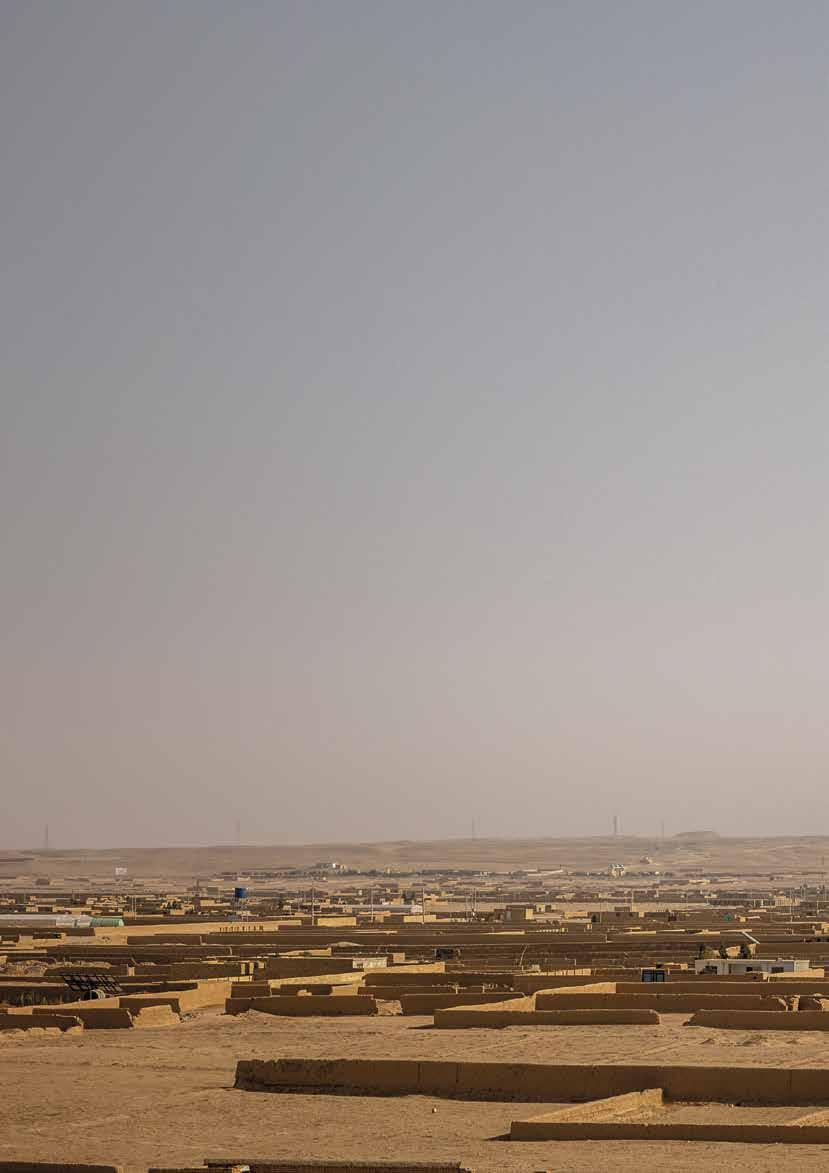
130,000
people benefited from emergency food packages including essential items like flour, oil, pulses and rice.
2,900
babies, infants and mothers were treated for acute malnutrition, with thousands more screened for malnutrition and provided with nutrition advice and support.
243,000
people received cash to buy essentials, like food and medicine.
22,800
households received hygiene kits including soap, toothpaste, and sanitary and personal hygiene items.
179,000
people accessed health services including consultations, medicines, vaccines, and treatment for maternal and newborn care.
5,300
households received essential items like cooking equipment, blankets and warm clothes, or cash grants to buy these items.
713,000
people, including mothers with young children, accessed primary healthcare services. This includes physical rehabilitation sessions, maternal and newborn care, and awareness raising around dysentery.
75,000 people were provided with food assistance, including essential food items and food packs.
27,000
people were able to access safe drinking water through the rehabilitation and construction of borewells and other water sources.
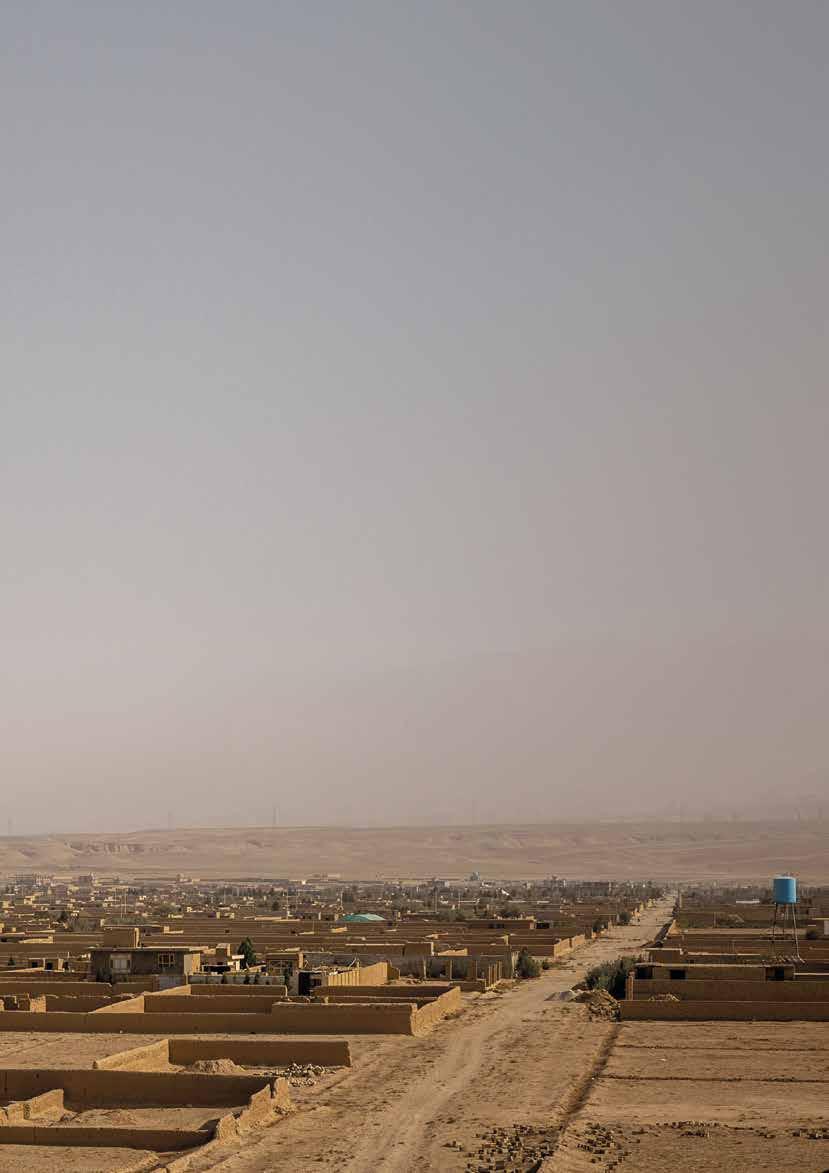
422,000
people benefited from cash payments to pay for food, winterisation and household items, and clothing.
49,000
people accessed mental health and psychosocial support.
1,300
healthcare workers were trained to better support their communities. For example, through communitybased health and first aid, and epidemic control for volunteers.
48,000
people were given support to rebuild their livelihoods, such as vegetable seeds, poultry kits, farming equipment and training.
176,000
people were reached through awareness-raising campaigns on sanitation and hygiene.
259,000
people attended information sessions about nutrition for young children or were screened for malnutrition. A further 17,000 were treated for malnourishment.
Multi-purpose cash assistance provides payments without specifying what it should be spent on. This gives families the autonomy to decide how best to meet their own needs. It’s a quick way to support people and gives them an active role in their own recovery. Most people used cash assistance to buy food, but others used it to pay for their rent, warm clothes, or healthcare, medicines and hygiene items.
For example, Save the Children worked with local partners to reach over 9,200 households with multi-purpose cash assistance in Nangarhar, Kunar and Laghman provinces. This supported over 64,600 people. The money helped families to meet their basic needs for food, heating and hygiene. It also supported people during the harsh winters and during Ramadan when food prices rose significantly, making it difficult for families to cover the cost of essential items.
Cash assistance helped people like Qurban, who was identified through a door-to-door vulnerability assessment in Badakhshan province by Concern Worldwide and its local partners. Qurban lives with his wife, two of their children and grandchildren in one tent. Both he and his wife have disabilities, making it difficult for them to work.
With the project’s support, the family received five months of cash assistance, which totalled at around £698 in the local currency. Qurban used this to buy food and clothes for his family, as well as paying for medical treatment and supporting his family through winter. He said: “I used part of the assistance for making a room on my land for my family, as in winter we cannot stay in the tent.”
Member charities and local partners surveyed communities in Afghanistan to get their views on multi-purpose cash assistance. Feedback showed that people appreciated the flexibility and choice that cash assistance provides. When Save the Children asked people whether they thought cash assistance was the most effective form of support to meet their food needs, over 99% said it was very effective.
422,000
people were supported with cash assistance to meet their immediate needs, like buying food and medicine

“This is a huge help for me and my family.”
“Lack of proper food and drinking water is our major challenge,” said Amina, a mother of five from Kabul. “My husband is visually impaired and cannot work. Our income is very low; not even enough to provide three meals for all our family members. I have problems sending my children to school because I cannot provide them with basic stationery and clean clothes. Our lives are filled with challenges that are rooted in poverty and lack of job opportunities.”
Christian Aid, alongside local partner, Afghans4Tomorrow, provided Amina and her family with cash assistance of AFN8300, which is around £80.
“When I got the cash assistance, I was so blessed,” explained Amina. “This is a huge help for me and my family. We were totally broken due to poverty. With the help of this cash, I have managed to buy medicine for my husband, pay my debts and buy stationery for my children.”
*Name has been changed

42%
Multi-purpose cash assistance accounted for 42% of total DEC aid expenditure over the two-year response.

With an underfunded and buckling health system, many people in Afghanistan have limited access to essential and life-saving health services. This has particularly affected people living in remote areas, and those who can’t afford to travel for treatment and women and children. DEC funds were used to set up mobile health units to reach those most in need. Rehabilitation teams were also deployed to health centres to provide physiotherapy for people with disabilities.
To support more remote communities and people who couldn’t afford to travel for health treatment, the British Red Cross set up 11 mobile health teams to provide essential health services across 11 provinces. This included immunisations, treatment for infections and antenatal support for new mothers. This project helped to reach over 251,000 people, including some of the most vulnerable, like children, women and those who fled their homes due to conflict.
The mobile health teams also ran 126 awareness sessions in communities to improve people’s awareness of illness and disease and promote healthy behaviours. These promoted vaccines to target communities and encouraged preventive measures against Covid-19. The member charity and local partners worked with community elders and local provincial health representatives to build support for the initiative.
Save the Children also used DEC funds to set up 10 mobile health and nutrition teams in remote areas in three provinces. These teams reached over 265,800 people with life-saving services, including trauma care, mental health and psychosocial support, immunisations, treatment and prevention of diseases, and family planning.
For pregnant women having difficulties reaching health services and midwives, World Vision’s 22 Family Health Houses (FHH), in six districts of Herat province, provided essential maternal and newborn care services. Midwives supported over 1,460 women through their births. The FHHs also provided family planning consultations for 15,325 women of childbearing age and helped to diagnose malaria in pregnant women who were high risk if they contracted the disease.
To make sure hospitals could operative effectively, Care International used DEC funds to support seven health facilities. This included installing electrical incinerators to stop the spread of infectious diseases and putting in solar panels so operating theatres had reliable lighting. The construction of washrooms and water provision also helped these health centres to run and treat people from local communities.
People with disabilities struggled to access the health services they needed, so Age International worked with local partners to provide physiotherapy teams in Herat province. More than 2,000 people with disabilities were supported by these teams, including those who were injured from the conflict and the earthquakes. Over 600 people received equipment like wheelchairs and walking aids, and more than 1,400 received physiotherapy and rehabilitation. Around 70% of people who accessed physiotherapy became more independent, helping to improve their quality of life.
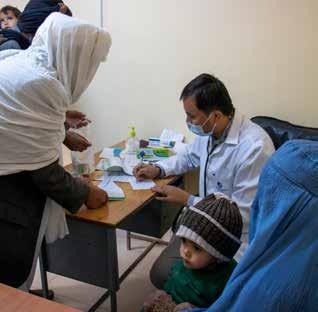
In Afghanistan, as a result of prolonged conflict and harsh living conditions, rates of mental distress and mental health challenges are high. The support provided by member charities and partners helped to improve the mental health of people like Zia. She was experiencing suicidal thoughts after the loss of her husband and was struggling to care for her five children. She visited a mental health awareness session in Helmand province, run by Action Against Hunger and a local partner. There, Zia received six counselling sessions. Gradually, her mental health and emotional stability improved, helping her to move forward.
713,000
people accessed primary healthcare services, including 33,000 mothers who received maternal and newborn care, 49,000 people received mental health and psychosocial support
12
mobile health units were set up to provide primary healthcare, including maternal and reproductive healthcare, psychosocial support, information sessions and physiotherapy services
“We’re happy with the clinic.”
“We had a very happy life, but my husband lost his job.” said Yasamin, a mother of eight living in Nangahar province. “We have a lot of financial problems and we’re very poor. I don’t have food to feed my children and they don’t go to school.
“Now the children aren’t getting enough food, they are getting sick often and they’re weak. One of my sons died last year because he was sick. He became paralysed and his hands became like claws. We didn’t have money to take him to get treatment and he lost his life. He was two years old.”
Yasamin’s son, three-year-old Sameem*, was diagnosed with pneumonia at a mobile clinic run by DEC member charity Save the Children and received treatment there. Yasamin is pregnant with her ninth child and also received support from the clinic, including a porridge to make sure she got the vitamins and minerals she needs during her pregnancy.
“My son was having chest problems,” explained Yasamin. “He was coughing a lot. He got sick in the winter, and we couldn’t get him medicine. I brought him here last week and now he’s started to improve.
“We’re happy with the clinic. I came here today for my checkup. I’m getting nutritious porridge that I can eat and share with the children. We cook it and then eat it with bread. The clinic is very near our home and it’s easily accessible to get healthcare services.”

Health interventions accounted for 13% of total DEC aid expenditure over the two-year response.
*Name has been changed to protect identity.
Dr Sharifi, a nutritionist, assesses patients at a mobile health clinic in Daykundi

At the beginning of 2022, UNICEF estimated that 3.2 million children in Afghanistan would suffer from acute malnutrition in that year5. As well as children, crisis levels of hunger also affected pregnant women and new mothers. Malnutrition can be treated relatively easily with fortified foods, but people living in rural parts of Afghanistan have limited access to health and nutrition services, like screening and malnutrition treatments. Recognising this critical need, member charities ran screening and treatment programmes across the country, including through the mobile health clinics detailed in the health section on page X. This made up a small but vital part of the DEC’s response.
World Vision screened over 28,200 children for malnutrition. Out of these, 1,532 children had severe acute malnutrition and received life-saving nutrition treatment. A further 3,600 children were supported with supplements and treatment for moderate acute malnutrition. The member charity also ran sessions with 15,526 people, including mothers, on feeding infants and young children.
2%
Nutrition services accounted for 2% of total DEC aid expenditure over the two-year response.
5 UNICEF, Afghanistan Humanitarian Situation Report #3, February 2022
A healthcare worker assesses a child for malnutrition at a mobile health clinic provided by a DEC member charity in Daykundi province which sees 80 children a day.
Photo: © Arete/Action Against Hunger
196,000 people were screened for malnutrition
62,500
people received information about nutrition for children under five and women who are pregnant or breastfeeding
13,500 people were treated for moderate acute malnutrition
4,400 people were treated for severe acute malnutrition
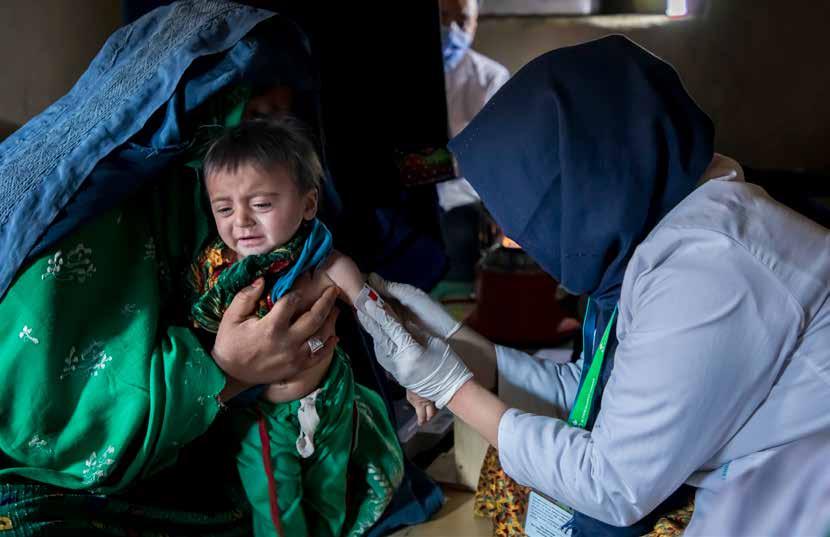

When the DEC launched its appeal in December 2021, drought conditions in Afghanistan were affecting crop yields. This had caused a dramatic rise in food prices and food insecurity for 5.5 million people. There was widespread hunger and malnutrition across the country. Some families had to make the heartbreaking decision to sell a child so they could feed their other children. In June 2021, at the start of the second phase of the response, prices were still persistently high, and people were struggling to buy food. Therefore, DEC member charities and their local partners continued to prioritise distributing food, providing people with cash to buy food and helping people to grow their own food.
Hundreds of women were given the opportunity to grow their own food, thanks to a project delivered by CAFOD and its local partners. More than 700 women in the Takhar, Samangan, and Daikundi provinces were provided with 10 types of seeds including carrots, radish and lettuce. The women were given training to cultivate their own vegetables, how to prepare the land for crops, applying chemical fertiliser and controlling weeds. Provided with the tools they needed, like shovels, pickaxes and sprinklers, the women produced 27,877kg of vegetables.
“They were given food packages and vegetable kits to grow their own crops.”
Gul, 33, is a widow and has five children. She lives in Nangarhar province with her children and husband’s sister. Gul was struggling financially and couldn’t afford to feed her children. Due to severe food shortages, she was only able to buy meat and fresh fruit once a month.
A door-to-door assessment carried out by Christian Aid’s local partner, the Organization for Coordination of Humanitarian Relief, identified Gul’s family as needing urgent support. They were given food packages and vegetable kits to grow their own crops. Gul was provided with enough food to feed her children for a month.
Caption: Gul Ghotai during receiving Food packages.
Christian Aid and its local partners supplied food baskets to 7,300 households in Kabul, Nangarhar and Laghman provinces, reaching a total of 55,146 people. The food baskets were given to households headed up by women, older people, people with disabilities and people who had fled their homes to safer areas of Afghanistan. Items included wheat flour, rice, vegetable oil, pulses and salt.
ActionAid provided cash assistance to 4,655 households in three provinces – Bamyan, Nangarhar and Samangan – to help 33,404 people buy food. This gave people food security and good nutrition in the short-term by meeting the needs of the most vulnerable households. The use of cash also empowered people to make their own choices about what they bought while supporting the local economy.

284,000 people benefited from cash assistance to buy food
75,000 people received food assistance including essential food items and food packs
19% Food assistance accounted for 19% of total DEC aid expenditure over the two-year response.
A record number of recurring droughts in Afghanistan left many people struggling to find clean and safe drinking water. Without access to clean drinking water, there is a risk of diseases, such as cholera, spreading quickly. Poor sanitation can also cause other diseases, and hospitals can’t operate without safe water sources.
DEC member charities and their local partners provided water, sanitation and hygiene support across Afghanistan. This included repairing water systems and water points so people had clean drinking water. They also provided hygiene kits, toiletries and sanitary items; and built toilet facilities and showers.
Due to drought in 2021 and 2022, the spring water in one village in Bamyan province had decreased so much that it couldn’t flow into the reservoirs supplying local people. CAFOD and its local partner built new pipe networks to connect the springs to reservoirs, so water could reach 14 communities again. The member charity also set up 29 water management committees, made up of 290 local people. The committees were responsible for planning and setting up initiatives that would provide safe drinking water and irrigation for crops. This included maintaining and managing water resources so that communities could take control of their water infrastructure.
To reduce the risk of infectious diseases, including cholera, dysentery and hepatitis A, Save the Children increased access to safe and protected water sources by repairing 18 damaged borewells. The member charity also constructed incinerators to dispose of waste, built separate toilets and handwashing stations for women and men, and delivered hygiene kits to women and children. These projects supported over 58,000 people who were affected by drought and flooding.
ActionAid built WASH facilities in four schools. This involved drilling boreholes, building toilets and installing solar powered water systems. Once completed, the facilities were handed over to the schools to manage. Over 4,500 children and teachers benefited from these new facilities, with access to safe water and clean toilets.
Basic hygiene, like handwashing, plays a vital role in reducing deaths from diseases like cholera, typhoid and hepatitis A. Tearfund set up a hygiene activity called Wash’Em to promote good hygiene and support people to change their behaviours for the long-term. This included providing training to 190 community leaders in Herat and Nangarhar provinces to promote handwashing and its benefits. Once trained, the leaders passed on the information they learned to a further 13,600 people in their own communities.
176,000 people were reached through hygiene awareness raising campaigns
140,000 people received hygiene kits
27,000
people accessed safe drinking water through the rehabilitation and construction of borewells and other water sources
6%
Water, sanitation and hygiene activities accounted for 6% of total DEC aid expenditure over the two-year response. .
Laila* washes dishes outside her family home in Daykundi province. Like many mothers in the area, she was unable to get help during her pregnancy as the nearest medical centre did not have enough medicine. © Arete/DEC
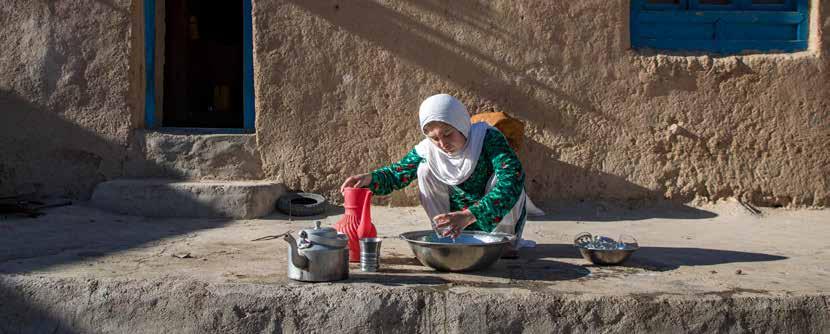
Many people in Afghanistan lost their livelihoods and incomes as a result of the economic crisis, which made it difficult for them to prepare for the harsh winter conditions. They struggled to afford the cost of warm clothes, heating their homes and fuel for cooking.
During the first phase of the response, DEC member charities and local partners provided winterisation kits containing warm winter clothes like jumpers, shawls, gloves and shoes, and other household items. For example, the British Red Cross worked with a local partner to distribute winterisation kits to over 1,000 households in Ghazni and Sar-e-Pul provinces. These contained winter essentials for over 5,000 people.
In the second phase of the response, DEC members and local partners continued to provide winterisation kits. For example, World Vision distributed 6,500 winterisation kits to pregnant and breastfeeding women and their babies. These contained blankets, socks, jackets, gloves and hats to help them stay warm.
Some multi-purpose cash assistance was provided ahead of the winter months to help families buy what they needed for the cold weather. As well as spending grants on fuel for cooking, heating and clothes to keep their families warm, people also used the assistance for things like medicine, healthcare services and books for their children.
6,500
pregnant and breastfeeding women and their babies were provided with winterisation kits containing warm clothing and blankets
4%
Winterisation and household items accounted for 4% of total DEC aid expenditure over the two-year response.

Supporting and strengthening people’s skills and livelihoods can enable them to earn an income and support themselves and their families for the long term. This helps to increase people’s resilience for any future crisis. In the second phase of the response, there was more emphasis on helping people to rebuild their livelihoods and provide for themselves and their families.
In Herat, in Western Afghanistan, there are a lot of mulberry trees which is a key food for silkworms. Tearfund and its local partner supported vulnerable households to grow silk from silkworms to sell in local markets. Silkworm cocoon eggs were distributed to 250 people in two districts. They harvested the cocoons and sold them in local markets to make carpets, clothes and scarves.
This project helped benefit people like Farzana, a 55-year-old mother of four. She said: “It has been a long time since my family and I had money or work in our village. It’s not just me in this situation but also many other people in our community. I felt frustrated because, although I had the required skills to work, I didn’t have the resources needed to start earning an income. I thought no one would help me and I did not have a penny to buy things I needed.
“But I then heard about this programme and, following an assessment, I was selected to be a part of it. I received packets of silkworm eggs alongside training and guidance in how to look after them. Later, I was able to collect around 36kg of silkworm cocoons and sold these for around £120. This programme has given me a huge amount of hope, and I feel deeply happy and grateful.”
To provide tailored support to vulnerable households, Islamic Relief Worldwide gave out 997 grants to help people generate an income. This included providing sewing machines and cash to buy livestock. Each household underwent an assessment so families could help to decide how they wanted to make a
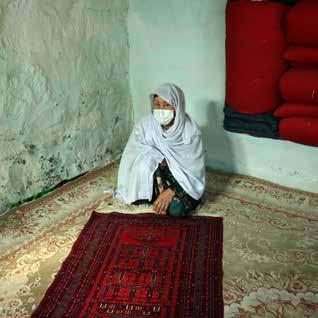
living. More than half of households set up businesses such as bakeries, while others started farming businesses like raising cows, goats and sheep.
Concern Worldwide ran a cash-for-work programme which provided temporary jobs working on projects that benefit the community. This gave immediate income to people in need. Projects included building 22 new roads and improving 10 more, five new irrigation channels and improving nine more, eight new community gardens and three new protective walls. In total, 27,411 people benefited from the cash-for-work programme in three districts.
28,600 people received cash assistance to support livelihood activities
7,500
people in Afghanistan took part in cash-for-work programmes, 250 people were helped to earn an income by harvesting silkworm cocoons and selling them to local markets
9%
Livelihood activities accounted for 9% of total DEC aid expenditure over the two-year response.
“They received cash assistance to help them to start raising chickens.”
Mohammad, 45, who lives in Nangarhar province, is disabled. He lives with his wife and nine children in a mud house. The family was experiencing financial difficulties after their crops were destroyed by floods. Without a source of income, they couldn’t afford to buy food and they had limited access to clean water.
The family were identified as needing support during a doorto-door assessment by Christian Aid and its local partner, the Organization for Coordination of Humanitarian Relief. They received cash assistance to help them to start raising chickens. The family focused on raising a flock of hens to lay eggs, which provided them with a sustainable source of income.
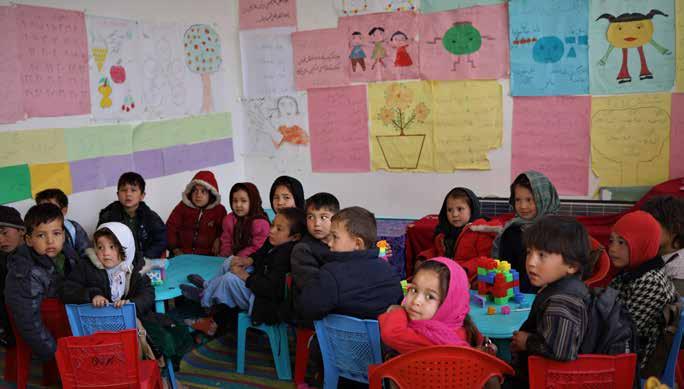
Decades of conflict and insecurity in Afghanistan have had a huge impact on people’s mental health. Action Against Hunger used DEC funds to set up a free telephone line to give people access to psychosocial counselling, psychological first aid and support. It was available for people to call from 33 out of the 34 provinces in Afghanistan. More than 980 calls were handled through the telephone line, providing immediate aid and directing callers to further appropriate support. In coordination with local authorities and a local partner, Action Against Hunger also ran four women friendly spaces in Ghor and Helmand. This project provided 2,262 women and girls with access to mental health and psychosocial support services.
World Vision set up 30 committees in Herat province, made up of members of the community – including women and people with disabilities – to talk and engage with their local communities on key issues affecting children. Issues raised included the psychosocial distress caused by people’s challenging living conditions and the role of community members in addressing this.
The member charity also organised training sessions for 320 school teachers on the importance of child protection and community involvement. It ran information sessions for 1,062 parents and caregivers about the importance of children going to school and the type of support they need at different stages.
World Vision also organised psychosocial support sessions for 4,024 children to help identify those who were at risk and needed support. These included children with cleft mouths and cleft lips who had difficulty eating, and children with hernias who lived in remote areas and didn’t have access to health services. Children with disabilities were given wheelchairs, walking sticks and hearing devices so they could go to school and continue their education.
Online and face-to-face counselling was provided by Tearfund and its local partners, with 1,559 people accessing this service. To measure improvement in people’s mental health, the member charity used the Depression, Anxiety and Stress Scale to assess them. Almost half (47%) of the people who were assessed showed improvement in their mental health.
49,000
people accessed mental health and psychosocial support
5,000
people attended awareness-raising sessions on gender-based violence4 safe spaces were set up to provide protection services and information for children and adults who were vulnerable and at risk
1%
Protection activities accounted for 1% of total DEC aid expenditure over the two-year response.
The situation in Afghanistan is complex, which made delivering humanitarian programmes extremely challenging. Member charities and local partners worked against a backdrop of insecurity, government restrictions, mountainous geography, extreme weather conditions and earthquakes. Here are some of the biggest challenges members and partners faced while working on this response and how they managed them.
Getting permission from authorities to start aid projects was a complex and lengthy process. At a national level, member charities and partners had to register every project on an online portal provided by the Ministry of Economy. One of the requirements was to provide data on the number of male and female staff members working on the project. The number of female staff caused concerns with the Ministry, which led to considerable delays in getting projects registered. Once registered with the Ministry of Economy, the registration letter was then sent to the relevant ministry for the project. A memorandum of understanding then had to be signed and issued. Gaining approval from different administration and governing bodies across different provinces was also challenging. Member charities and local partners dedicated a lot of time to meeting with authorities, which often led to delays in carrying out work.
For example, a project set up by ActionAid in 2022 took three months to get approval for. This delayed the distribution of hygiene kits, four rounds of cash assistance for food, cash for work activities and construction of WASH infrastructure in four schools.
In 2023, the government ministries put more obstacles in the way of humanitarian aid work. For example, the Ministry of Public Health issued a letter to humanitarian aid organisations banning activities like public awareness and mental health and psychosocial support services. The Ministry of Economy also rejected the registration of projects involving advocacy and peacebuilding. Issues like these took time to address and resolve.
Some member charities reported that authorities interfered in aid projects. For example, some authorities insisted that member charities pay for government monitoring staff, while others demanded to see beneficiary lists and other personal data. They also tried to direct aid to people affiliated with the authorities. In all cases, member charities refused to comply with what authorities were telling them to do as it contradicted humanitarian principles of impartiality.
Member charities organised meetings with government bodies to address these issues. When working with authorities, member charities and local partners emphasised the core humanitarian standards and principles guiding their work. They also highlighted the importance of humanitarian organisations providing independent and impartial delivery of aid. These challenges were successfully resolved so that members could deliver timely and effective assistance going forward. Members and partners have worked in Afghanistan for a long time and developed strong relationships with communities, including religious leaders and community elders. This helped to make sure that the people who needed support were identified and reached.
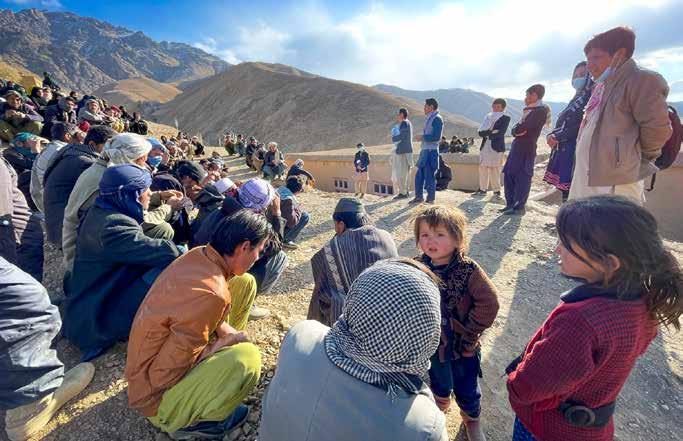

DEC member charities and local partners delivered cash assistance to affected communities in Afghanistan. But getting access to physical cash was a challenge because of the country’s economic situation, the fluctuating exchange rate and government sanctions. To overcome this, member charities worked with the UN transfer mechanism and other money services providers to deliver physical cash to Afghanistan.
Since the Taliban came into power, women have increasingly been excluded from the workforce. Female workers are vital to the success of humanitarian responses, accounting for 40% of the NGO staff in Afghanistan6. They play a crucial role in assessing the needs of and reaching vulnerable women and girls who need support.
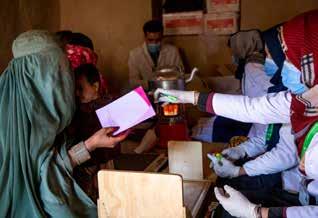
When the government banned women from working in the humanitarian sector in December 2022, member charities had to quickly adapt. They had to find new ways of working so they could maintain the response to the best of their ability and still reach women and girls who needed support.
Despite the national ban, some member charities were able to negotiate at provincial and district levels to have women work with them. For example, CAFOD’s local partners negotiated with Afghan authorities at the provincial level to get approval for female staff to support women in local communities. The member charity also continued to involve female workers in village-based activities, like kitchen gardening. Other members worked with female elders from the community to reach women instead of using female staff.
Member charities introduced innovative measures to reach women and girls in need. For example, it was announced that women who work in health and nutrition could continue working with humanitarian organisations. So, members integrated other projects into this sector so they could continue to reach those in need. For example, Concern recruited 200 female staff to provide information sessions and training on nutrition for women in the local community. The female staff recorded short videos on nutrition topics in the local language.
Women and girls have experienced increasing restrictions on movements and participation in everyday life. Member charities navigated these challenges by introducing different ways of working. Thanks to field coordinators and access teams on the ground, the International Rescue Committee (IRC) was able to gain informal approval to allow women back to the office. The IRC also implemented a Mahram policy, where female staff were 6 UK Parliament, Afghanistan: Ban on female aid workers and future of UK aid, May 2023
escorted by male chaperones on field visits and office duties to comply with government directives. Female staff were provided with separate shuttle cars to pick them up and drop them off. As men and women couldn’t sit together, the member charity rented more offices to separate women and men. This increased maintenance and other operating costs for the IRC, like buying extra furniture. However, it meant the member charity managed to keep female staff working to reach vulnerable women and girls.
International NGOs were restricted from working in the education sector in Afghanistan, which stopped them from carrying out their planned projects. For example, member charities and local partners could no longer carry out water, sanitation and hygiene programmes in schools. Remaining funds were reallocated to other activities, such as providing multi-purpose cash assistance and rebuilding livelihoods.
Member charities and local partners working in Afghanistan had to develop and use criteria to identify the most vulnerable people who needed help with the limited resources available to them. But this process was sometimes compromised by community leaders. Some member charities said people who
were given cash assistance were pressurised by community leaders to share their funds with other community members. This is because social and religious practices in Afghanistan dictate that resources are shared with the community when the whole area is affected by a serious humanitarian crisis. This included community members who were better off and less in need of urgent assistance. By sharing resources across the community, member charities and local partners couldn’t have as big an impact on the most vulnerable people.
In Afghanistan, community elders hold an influential role, helping to support and implement local activities. To engage community elders, the International Rescue Committee held awareness sessions. These sessions helped everyone in the community to understand that aid needed to be targeted towards those who need it the most according to set criteria. They also addressed sensitive issues, like encouraging the creation of safe spaces for women to access services. Before the member charity left the community, it gave training to local partners to strengthen local capacities so that services could continue beyond the life of the project.
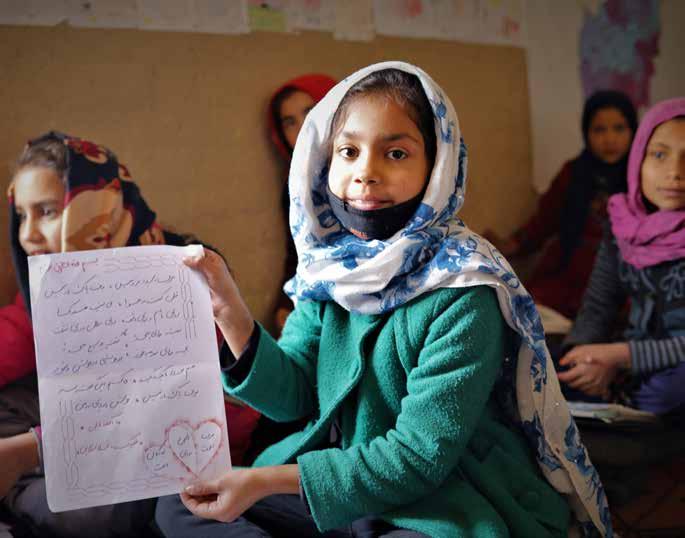
The DEC and member charities use learning from past and current emergency responses to make sure funds are used appropriately and humanitarian programmes meet the highest standards. This makes sure that people’s needs are met, and their dignity is respected.
Here is some of the best practice used by DEC member charities and their local partners in Afghanistan to meet this commitment:
DEC member charities and their local partners worked closely with local communities to make sure the work they carried out was meeting their needs. They put processes in place for people to share their views and give feedback. This meant that member charities and local partners could be held accountable for their work.
For example, Save the Children set up committees in 80 villages in which they were working to encourage communities to engage with the organisation and share their views on projects. Members of the committees were chosen by local communities to represent the total population of the villages. Save the Children involved the committees in projects they were running, including multi-purpose cash assistance. The member charity and committees discussed the criteria for selecting who would receive cash support, and how much each person selected would receive. They also talked about the role of the committees and the importance of communities being involved in aid projects.
Islamic Relief set up separate consultation meetings to get the views of men and women who were identified as being in need. These were used to help shape and plan projects, set criteria for those who would receive help and identify the needs of households.
Feedback was used to shape the response in Afghanistan. For example, both ActionAid and Christian Aid reported that communities were requesting cash rather than in-kind food assistance. Food baskets and packages were initially given out to communities because people were going hungry. But when Action Aid carried out an assessment of the market, it found that food was available but households could not afford to buy it at local market rates. Both member charities switched to providing cash to communities as a result.
DEC member charities worked closely with local partners and communities to support a locally led response wherever possible. Local partners had knowledge of the area and were accepted by the communities they worked with. By working with local partners, member charities could better identify those in most need of urgent support.
For example, Tearfund’s local partner had a large pool of volunteers, both women and men, from the local communities to help run projects. This helped to strengthen the voices and perspectives of community members, particularly women, people with disabilities and older people.

Aina* and her children collect water in Daykundi province. The family received cash support from a DEC member charity.
CAFOD set up 29 committees, made up of 290 people from local communities, to look at how to manage water and reduce the impact of water-related disasters. The committees were responsible for planning and mobilising community activities to provide safe drinking water and construct water supply for irrigation of crops. The committees were also involved in addressing and reducing the impact of water-related disasters that had previously affected their communities, like flooding. Local knowledge is vital to effectively manage disasters as it can help to identify risks, vulnerabilities and appropriate mitigation measures. Involving local people in these types of projects gives them the information and skills they need to support their communities once aid projects come to an end.
Throughout the response, all DEC member charities and partner organisations prioritised the safety and security of vulnerable people in local communities across Afghanistan.
This included having robust safeguarding policies in place to protect the welfare of vulnerable adults and children. For example, Age International has a safeguarding policy in place that emphasises the need to promote awareness of abuse issues and how to make sure that safeguarding and protection is a tangible part of daily and working life. The member charity has a rigorous induction process, including sharing information on how to safeguard vulnerable people, and all staff, partners, consultants and volunteers are asked to commit to the policy.
As part of safeguarding processes, member charities and local partners communicated important messages to people. For example, the British Red Cross’s local partner ARCS distributed dignity kits to 17,436 women in 5,000 households. As well as essential items, like sanitary products, the kits contained leaflets about how to communicate issues happening in the community, including a telephone number to report concerns.
Member charities also put processes in place to protect people who received aid from the authorities. One of the challenges members came across in their work was authorities interfering in aid projects. Some authorities demanded to see beneficiary lists and other personal data. To make sure authorities didn’t get access to this information, members set up different ways for people to provide feedback and make complaints. This included setting up telephone helplines for people to call if they wanted to report a concern. These numbers were shared on leaflets and posters.
Afghanistan continues to face a climate emergency, with the third consecutive year of drought in 2023. This continues to affect people’s access to water and compromises crops and livestock. During phase two of the response, member charities and their local partners worked closely with community members to support them to reduce the impact of climate change.
While not the primary focus of the DEC’s humanitarian response, in total almost £800,000 of DEC funds was spent on projects supporting the environment and helping people to adapt to climate change.
The International Rescue Committee was one of the members which prioritised work in this area. It set up centres to train people from local communities in sustainable agricultural practices. This gave 1,800 people the knowledge and skills to use water conservation, soil management and crop diversification, so they could earn an income and sustain their livelihoods.
World Vision gave training to communities about the causes and effects of climate change and encouraged them to adopt eco-friendly practices. This included waste reduction, energy and water conservation, and tree planting. Meanwhile, CAFOD
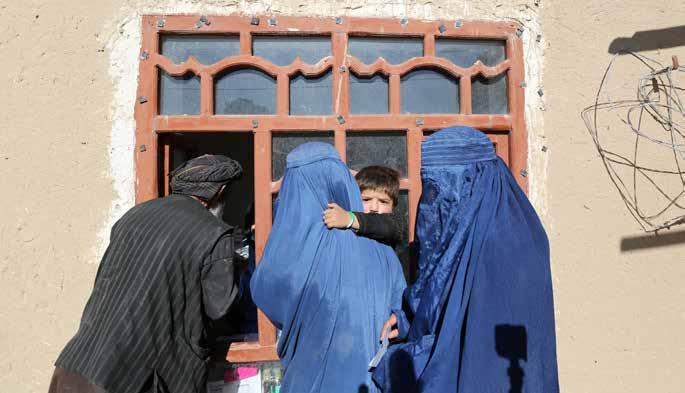

set up committees in different provinces to train local people. in growing crops that were suitable for the climate where they live. They were given seeds that would adapt to their climate and tools to cultivate them.
As well as running projects that supported communities in Afghanistan to adapt to climate change, some DEC member charities and local partners ran projects on disaster risk reduction. These helped to increase people’s understanding and knowledge of how to reduce the risk of disasters and prepare for them.
Concern set up 34 committees, made up of members of the community, to produce toolkits to inform communities on what to do in case of an emergency, such as a flood, earthquake or landslide. The committee members were trained on topics such as defining risk and disaster, social mobilisation to mitigate the risk of disaster and the community’s role in reducing disaster risk. The aim was to give committee members the skills to reduce risks. The committees also created their own maps to identify risk-prone areas and safe areas to raise awareness among communities.
It was also important to build defence structures to prevent the risk of future natural disasters. CAFOD and its local partners supported the reconstruction of support walls for canals, excavation of watershed trenches, repairing water reservoirs, cleaning of dams and repairing roads.
The DEC, member charities and local partners are striving to learn from the response in Afghanistan to make improvements in the future. At the end of our appeals, the DEC carries out a review to consolidate learning and ensure that any lessons are carried forward to our future work. For Afghanistan, this took place between December 2023 and April 2024 and assessed the activities of 13 DEC members who were involved in the response.
A number of documents and studies were included in the learning and improvement review. These include:
■ DEC members’ programme reports submitted covering the duration of the appeal
■ a real-time review of projects that were implemented in phase one of the appeal
■ the findings of two community perception surveys which strengthen accountability to affected populations through understanding their experience and perceptions of aid
■ DEC member evaluations from Age International, CAFOD, the International Rescue Committee, Islamic Relief and World Vision
■ additional resources such as needs assessments and response plans for Afghanistan.
Some key lessons that emerged from the review were:
■ the importance of looking after the mental health of staff and volunteers working for partner organisations. It was important to put policies in place to prevent stress and security concerns among Afghan partners.
■ making sure marginalised groups, like women, can be involved in home-based projects to bypass societal and operational barriers.
■ recognising the need to integrate disaster risk reduction and climate resilience into humanitarian programmes.
■ the need to swiftly pivot resource allocation and prioritise projects in response to the shifting needs of communities.
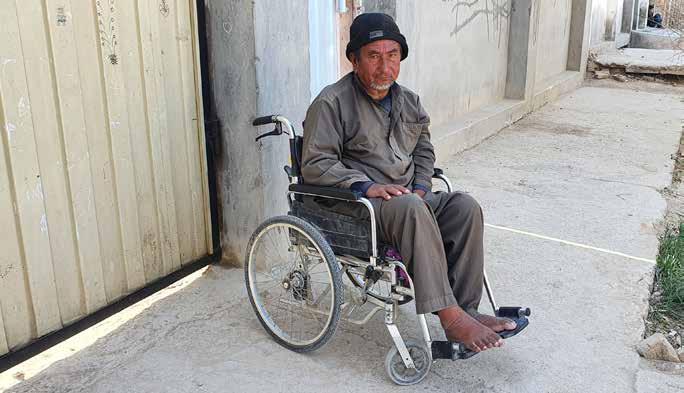
Older people, people with disabilities, women and children have been affected the most by the situation in Afghanistan. During the response, the DEC’s member charities and local partners focused their efforts on reaching these vulnerable groups of people.
Women and girls in Afghanistan have very limited access to education and vital health services. World Vision organised health education workshops to help girls understand menstrual hygiene, good nutrition, and sexual and reproductive health. These sessions gave girls information about their bodies, promoted self-care and reduced the stigma around discussing personal health.
Efforts have been focused on identifying households headed by women, widows and pregnant and breastfeeding mothers. For example, the British Red Cross set up 20 committees with 300 members to engage women in community initiatives and decision-making processes. The committees worked with health authorities to help improve access to health services, recruit volunteers for water, sanitation and hygiene activities; and implement community health plans.
World Vision held vocational training workshops to support people with disabilities to find work and earn an income. People with disabilities took part in awareness sessions on rights, entitlements and access to services to help them advocate for what they need. Age International targeted support at older people and people with disabilities by providing mobility devices. More than 2,000 people were provided with wheelchairs, crutches, walking frames and toilet seats. These helped to increase the independence of older people and people with disabilities.
The scale of the crisis and seeing people’s daily struggles had a significant effect on staff and volunteers working for local partners. It was important to look after people’s mental health and put policies in place to prevent stress. DEC member charities, like Tearfund, put measures in place to support the mental health and psychological resilience of staff. Those working for local partners were able to access counselling, both for themselves and their families, whenever they needed it. This included access to a psychiatrist and follow up treatment for people who were experiencing specific work-related trauma.
Staff working for Tearfund’s local partners took part in two activities. These were a team building session and a reflection day to talk about the risks and challenges of their work. A small amount of funds was used to buy gym equipment, a table tennis table and a chess set, so staff could socialise with each other during lunch breaks. These types of activities were important as they helped to improve people’s mental health.
To avoid duplication and to make sure that the most vulnerable people had their needs met, DEC member charities supported each other throughout the two-year response. This included setting up in-person and online meetings so DEC members could share their learning from projects. These meetings gave members the chance to update each other on activities. Members said they found these meetings invaluable. For example, Tearfund said that it was “incredibly useful to hear how other agencies resolve challenges”. It also helped different charities working in the same provinces to coordinate their DEC-funded projects.
It was vital that member charities and local partners worked with national, provincial and local authorities in Afghanistan to make
sure that aid reached those most in need. For example, when funds had to be reallocated to other projects following the ban on women working in the humanitarian sector, CAFOD held 16 coordination meetings with different government and community representatives. This made sure there was a smooth transition and that the most vulnerable households were targeted.
Member charities also worked closely with community groups and elders. For example, one of Age International’s partners worked with community health workers and volunteers to make sure people who were injured by improvised explosive devices were referred to the right services. Action Against Hunger used community outreach officers to work with mobile health and nutrition teams and community elders. This helped to improve relationships with community groups and elders and identify those most in need of support.
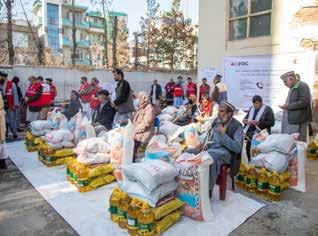
Flexibility is at the heart of the DEC’s approach to funding. This means that member charities can adapt quickly to emerging situations or when people’s needs change. In the challenging operating environment in Afghanistan, it was vital to reallocate funds to support communities when four earthquakes hit Herat province in October 2023.
More than 2,400 people lost their lives in the earthquakes, according to the Red Cross, with 30,000 homes destroyed. Essential infrastructure including roads, water pipes and power supplies were damaged. In total, over 275,000 people across nine districts were affected.
Seven DEC member charities worked quickly to deliver critical aid to those who needed it. They reallocated around £350,000 in DEC funds to provide cash assistance, food, winterisation kits and household items.
World Vision’s mobile health nutrition teams were among the first responders to provide assistance to affected areas. They provided essential health and nutrition services directly to community members, including screening for malnutrition, provision of primary healthcare services, and mental health and psychosocial support. The member charity also provided multi-purpose cash assistance to 864 households. Action Against Hunger gave psychological first aid training to counsellors, social workers, doctors and nurses working in Herat. More than 170 people from
nine organisations were trained in emotional support and how to listen, identify and refer affected people to existing services.
A team of physiotherapists and psychosocial workers were sent to the area by Age International and its local partner. Over 4,000 people were provided with physical rehabilitation and mental health support. The member charity also ran 1,260 awareness sessions for 15,574 people in two districts to improve their understanding of psychosocial support and physical rehabilitation.
The impact of the earthquakes was felt by everyone, including partner staff. Many in the area experienced damage to their homes, forcing them to take shelter, cook and sleep in their gardens at the height of winter. Tearfund provided partner staff with a supplementary salary up-lift of around £150 to help cover their increased needs. Some partner staff and their families also received mental health support from a psychologist. Partner staff who were supported in the aftermath of the earthquakes said that this demonstrated the member charity’s commitment towards the care and safety of partner staff. Despite the challenging circumstances, the extra support had a significant positive effect on staff wellbeing, morale and increased their desire to continue working.
Nearly half a million people returned to Afghanistan after Pakistan declared that all undocumented immigrants must leave by 1 November 2023. Many families returned without places to live, an income or means to support themselves. Afghan authorities struggled to support such a high number of returnees in a short space of time. Returnees were extremely vulnerable and needed immediate support including food, healthcare and cash assistance.
Member charities like Save the Children used DEC funds to provide cash assistance to 385 households settling in districts within Nangarhar and Kunar provinces. The member charity relocated two mobile health and nutrition teams to Torkham, a major border crossing between Pakistan and Afghanistan to provide returnees with access to essential health services.
Save the Children also funded the cost of building extra toilets, handwashing stations and incinerators to improve sanitation facilities for Afghans returning to the country. The member charity distributed hygiene items and provided access to safe drinking water. In total, this work benefited 54,775 people.
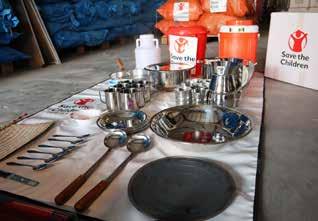
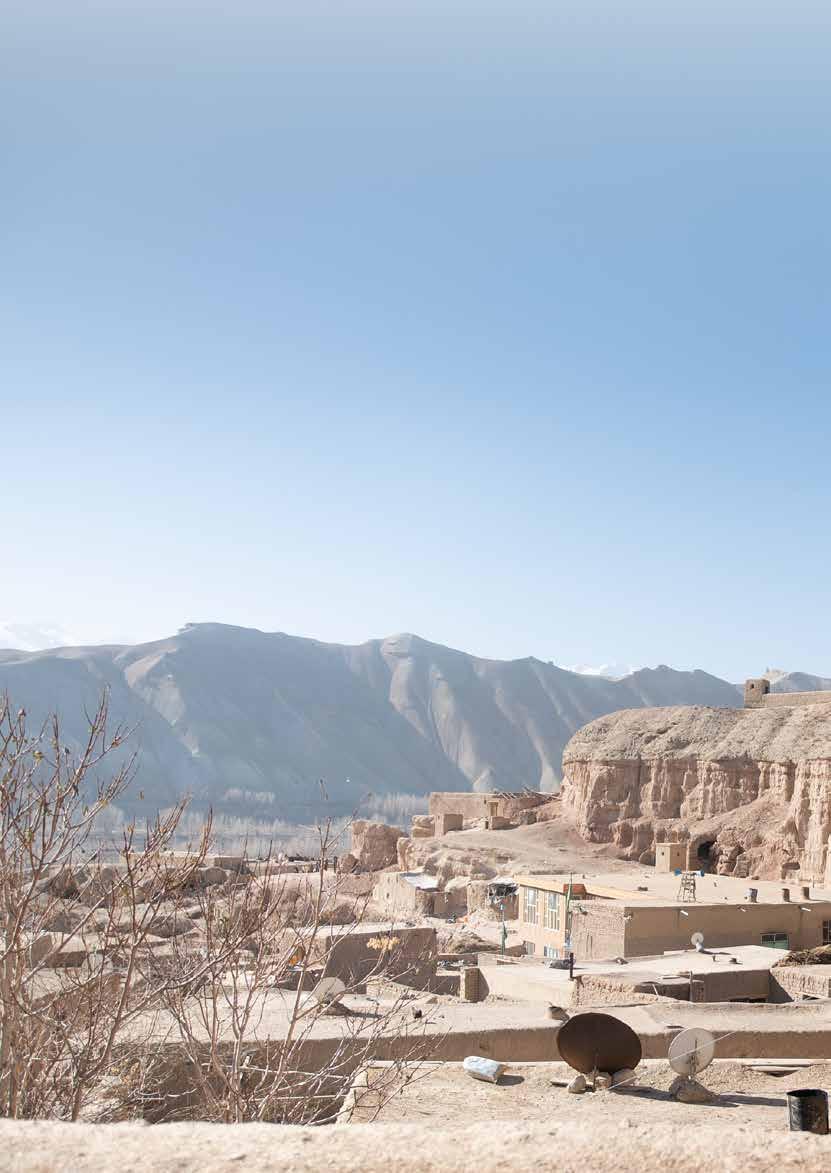
DEC funded programmes typically run for two years to support people in crisis situations and begin the task of helping communities to recover. At the end of DEC-funded programmes, some member charities and their local partners take over the work, including finding further funding where possible.
In December 2023, the Afghanistan Crisis Appeal ended. The money raised from the UK public funded a two-year humanitarian response from DEC member charities and local partners.
During this time, DEC member charities and their partners worked tirelessly to support affected communities. They have reached more than 2.7 million people by providing access to basic services to meet immediate needs for food, clean water and health. Together, they have contributed to breaking the cycle of food insecurity for some people by supporting them to rebuild their livelihoods and earn an income, and setting up disaster risk reduction activities to strengthen the resilience of communities. Towards the end of phase two, member charities and local partners focused on giving people the information and skills they need to look after their own communities once humanitarian aid organisations have left Afghanistan.
During the two-year response, local partners managed the expectations of local communities and communicated the timelines of projects. This helped to make sure there was a clear understanding of the limitations of aid projects, including budget and when they would end.
Instilling knowledge and confidence in local communities was also crucial. Christian Aid and its local partners worked with communities to explain how they could be involved in decision making and hold INGOs to account. This increased people’s understanding of how to look out for their own communities once projects ended.
Working through local partners rather than directly with communities creates long-term sustainability. DEC members have supported local partners to learn new skills and develop their work, so they have the capacity to continue working in Afghanistan. DEC members have also learned from local partners, including how best to reach the most vulnerable people and an understanding of the social, cultural and religious context in Afghanistan.
At the end of the response, Afghanistan continues to face a humanitarian crisis. UN agencies estimate that 23.7 million people – more than half of Afghanistan’s population – still require humanitarian assistance to survive in 20247. High levels of support are still needed to match the scale of this humanitarian crisis.
The DEC-funded programming has now ended, but member charities and local partners are determined to keep doing what they can to support the people of Afghanistan. Some member charities are continuing to work in Afghanistan and have secured extra funding so that their local partners can continue their vital work.
For example, Tearfund has secured extra funding to run new projects with local partners throughout 2024. These are focusing on mental health and psychosocial support, hygiene and WASH, food security and emergency relief. These projects are running at a smaller scale than previous projects, which will help to make sure there is a smooth transition as local partners prepare to leave communities in the future. Action Against Hunger has also secured extra funding to continue providing vital services. These include a telephone support line for people to access psychosocial support, and mental health and psychosocial support services for women.

When the Taliban took power in 2021, CAFOD launched its own appeal. The member charity is using the remaining funds to support the work of local partners, as well as investing in longterm projects that focus on climate adaption and livelihoods.
Other member charities, like the International Rescue Committee (IRC), are also continuing to work in Afghanistan. For example, the IRC set up programmes during the DEC appeal that continue to be funded. These are helping people to rebuild their livelihoods, foster self-sufficiency and improve their ability to reduce the risks associated with drought and natural disasters.
Unfortunately, due to the lack of funding available for Afghanistan, some member charities had to stop providing support at the end of December 2023 when the DEC-funded response ended. This includes mobile health clinics, food distribution and cash for work projects. Women and girls have been particularly affected by this. The DEC is continuing to publicise the message that member charities need to be supported to continue their work in Afghanistan through signposting and highlighting members’ ongoing work and appeals.
The DEC brings together 15 leading UK aid charities to raise funds quickly and efficiently at times of crisis overseas. It allocates appeal funds to its members and makes sure that the generous donations of the UK public are spent where the need is greatest. This means providing immediate emergency aid for communities devastated by humanitarian crises, as well as longterm support to help people rebuild their lives and strengthen their resilience.
Donating through the DEC is simple and effective. It removes unnecessary competition for funding between aid charities, reduces administration costs and improves coordination, collaboration and efficiency.
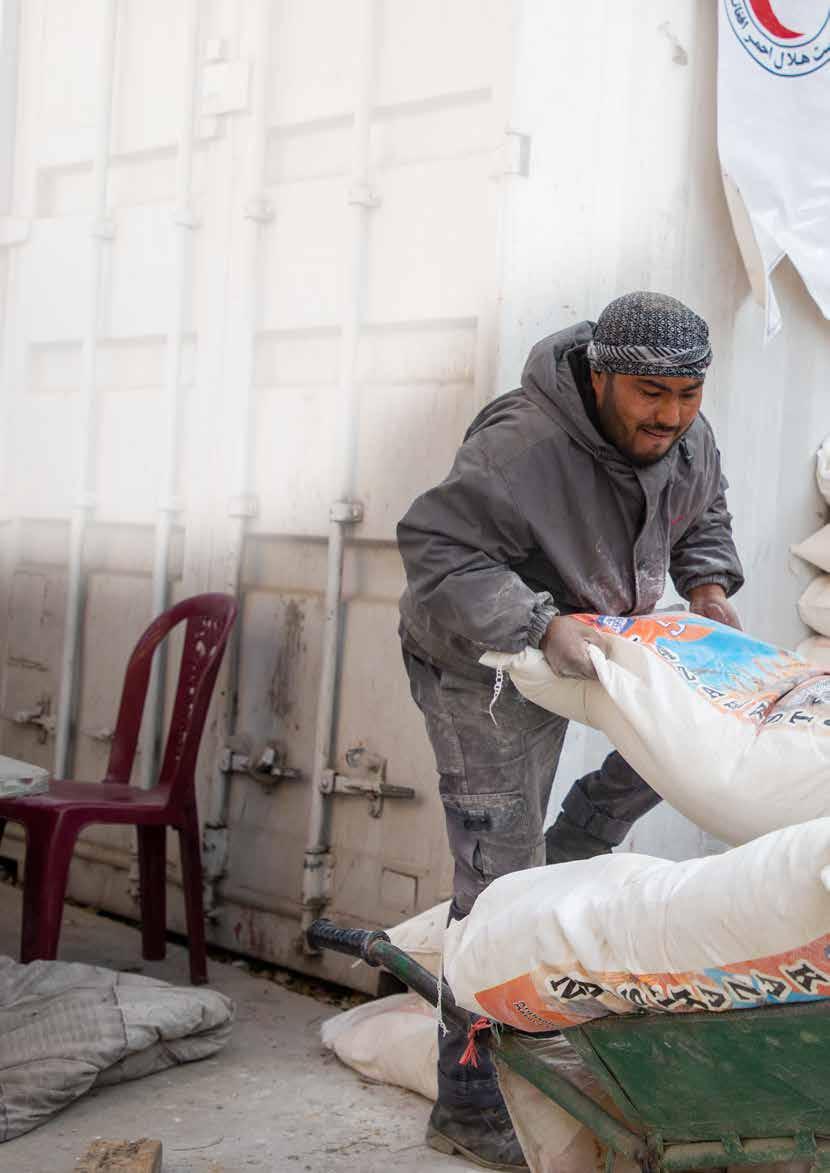
Over the past five years, the DEC has provided support to communities in Afghanistan, Bangladesh, the Democratic Republic of the Congo, Ethiopia, Hungary, India, Indonesia, Kenya, Malawi, Moldova, Mozambique, Pakistan, Poland, Romania, Somalia, South Sudan, Syria, Turkey, Ukraine, Yemen and Zimbabwe.
